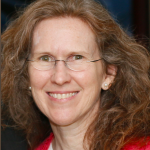This week we’re bypassing bureaucrats and pundits to hear directly from folks who are using health care technology every day. Last week I had the chance to share an online discussion room with 3 experienced nephrology practice executives who solve real-life practice problems daily. Here is a transcript of our discussion about Meaningful Use, patient engagement strategies, and the nephrology workforce.
Practice executive participants:
Jennifer Huneycutt, Executive Director, Metrolina Nephrology Associates, Charlotte, NC
Carole Ann Norman, Practice Manager, Columbia Nephrology Associates, P.A., Columbia, SC
Linda Miller, Administrator, Tyler Nephrology Associates, Tyler, TX
Moderated by Dugan Maddux
Tuesday, February 3, 2015 on Tablii.
____________________________________________
Moderator: Let’s start this discussion by talking about Meaningful Use (MU). What is your 1 biggest MU challenge for 2015?
Jennifer: We have concerns about the 50/50 rule, and whether or not having a physician who has previously attested to MU Stage 1 then opts out due to 50/50 rule for Stage 2 will create any type of audit backlash. Patient engagement is also a big concern in the Stage 2 measures.
Carole Ann: I agree with Jennifer regarding patient engagement. We hired a FTE to assist with our patient portal in hopes that we can get patients to sign up before they leave the office. This is difficult to do in some patient populations.
Linda: We have experienced the same problem that Jennifer and Carole Ann have voiced. Many of our patients do not utilize computers.
Moderator: Jennifer, will you have many of your providers opting out due to the 50/50 rule?
Jennifer: This is unknown for Stage 2. We are currently working through the 2014 attestation process and due to a delay in our software implementation will be doing 2014 Stage I measures. All 30 will attest for Stage I program year 2014. We have about 5 physicians that cut the 50/50 rule pretty close.
Moderator: Carole Ann, what about your group and the 50/50 rule?
Carole Ann: We are following Jennifer on this one as well. We also had issues with delays in our EHR upgrade for MU. We are attesting for 2014 Stage I measures as well.
Moderator: Linda, are you attesting to Stage 1 or 2?
Linda: The majority of our group attested to Stage 2. We did not have any providers opt out.
Moderator: What is the 1 most helpful thing your EHR does to help you collect data for MU?
Jennifer: That’s a tough one. We really feel that we work for the EHR. Getting things captured appropriately requires significant changes in workflow. Training becomes a key component as every single step matters. Educating and maintaining the right workflow matters and is extremely difficult in a practice our size with multiple locations.
Linda: In general Meaningful Use is really “unmeaningful use.” I believe it takes away from patient care as we are constantly trying to obtain the measures that are required in order to receive our incentive. That being said, our EHR has the ability to collect the data and load into a dashboard to be able to view where each physician stands in real time which is a big help with MU requirements.
Carole Ann: Our EHR vendor has tried to develop prompts to assist with collection of MU requirements. Workflow changes to fill in the required MU data increases visit times. Providers feel that they don’t have as much patient/MD contact because of all the requirements they have to meet.
Moderator: So, while we’re talking about Meaningful (or unmeaningful) Use, let’s talk about patient engagement and patient portals. Are your practices using a patient portal?
Linda: Yes
Jennifer: Yes, we do.
Carole Ann: Yes, we are utilizing Follow My Health. We have clinical summaries, labs, and appointments active. We have yet to flip the switch to have the patient actually communicate with the office…that’s our next step.
Moderator: Is your staff happy with the portal? Is it saving them time?
Carole Ann: We are asking the staff to encourage the patient to sign up for the portal when they ask for a copy of their labs. If they agree, they are led directly to our Follow My Health staff member so they can be activated before leaving our office. It’s difficult because it adds time at check in which snowballs, slowing down MAs and MDs seeing the patient.
Linda: We just opened up our patient portal within the last 6 months. It has not caught on yet, but I believe that within the next couple of years we will be using it regularly to communicate with patients. At this time, when patients are in our office, we are assisting them in getting registered.
Jennifer: We like the portal. We started in August and have just over 1,500 patients who have created accounts. The portal currently is set up to send clinical summaries, appointment activities, patient messaging, Rx renewals, and pharmacy updates. Unlike Carole Ann, we have not turned on labs. That is currently in the works for this month. Most patients seem to be interested in that access more than any other and we expect that this functionality will increase enrollment. Patient messaging has worked well and overall we do find that it saves time.
Moderator: Have any of your patients expressed an interest in sharing personal health data like Fitbits or other home devices?
Carole Ann: Not at this time.
Linda: I have not been asked about it.
Jennifer: No, not that I’ve heard.
Moderator: Okay, let’s talk about workforce and person-power issues. Lately there has been a lot of talk about the shortage of nephrologists. What is your physician and physician extender mix like now?
Linda: Currently we have 14 nephrologists and 2 advanced practitioners. I am looking for at least 2 more nephrologists and 1-2 advanced practitioners.
Jennifer: We have 31 nephrologists and 15 advanced practitioners. We are planning to hire 1-2 additional advanced practitioners this year. Philosophically, we believe that our ratio will ultimately become 1:1 over the next 5-10 years.
Carole Ann: We currently have 16 nephrologists, we are adding our 17th in August and are recruiting currently for at least 1, but if we find 2 good candidates, with the shortage of nephrology fellows, we may hire 2 for growth. We have 7 advanced nurse practitioners with no thoughts of adding more at this time.
Moderator: Linda, what will your group look like in 5-10 years?
Linda: Hold on and let me get my crystal ball out…I expect that we will have 1 or more mergers with other nephrology practices. I agree with Jennifer that we will be utilizing advanced practitioners more as it appears that nephrologists will be harder to find.
Moderator: Jennifer, with your 1:1 ratio will you still be covering clinic, dialysis unit, hospital, and vascular suite?
Jennifer: We will continue to operate in all of those settings. We anticipate that advanced practitioner growth will occur in the hospital and office settings. We do not use them in any capacity in the VAC. We currently use them to do 3 of the 4 monthly outpatient dialysis visits. Growth in this particular area will be dictated by ESRD patient growth in our market.
Moderator:Carole Ann, any change in your extender ratio in 5-10 years?
Carole Ann: Our culture has been such that we only utilize them to assist with dialysis clinic rounding, established office visits, and subsequent visits in the hospital, but we have had discussion about having them assist with new patients to the practice. Our MDs are not there yet, but are starting to think about how ANPs could help them more.
Moderator: Is there a future for Telehealth in your practice?
Jennifer: We are already participating in Telehealth. We have one hospital where we are providing nephrology consultation in this manner. We expect to bring on a second in the 2nd quarter and also a third later this year. We are not currently working on this in the outpatient setting.
Carole Ann: YES!! We are working with one of our transplant centers to assist with the pre-transplant visit with all of their “modalities.” We have hardware in place just waiting on our first patient. We may also utilize this for CKD correctional facility patients.
Linda: In the future, I believe that it can assist us with dialysis rounding. We have had no discussions with regard to use in the hospital setting.
Moderator:Thank you so much for sharing your thoughts about these issues.
Carole Ann: Thanks! It was fun! See everyone at the RPA!
Jennifer: Thanks for including me.
Linda: Thanks for including me in the discussion!
If you would like to answer any of these questions or add to the expert responses, please post a comment.
 Dugan Maddux, MD, FACP, is the Vice President for CKD Initiatives for FMC-NA. Before her foray into the business side of medicine, Dr. Maddux spent 18 years practicing nephrology in Danville, Virginia. During this time, she and her husband, Dr. Frank Maddux, developed a nephrology-focused Electronic Health Record. She and Frank also developed Voice Expeditions, which features the Nephrology Oral History project, a collection of interviews of the early dialysis pioneers.
Dugan Maddux, MD, FACP, is the Vice President for CKD Initiatives for FMC-NA. Before her foray into the business side of medicine, Dr. Maddux spent 18 years practicing nephrology in Danville, Virginia. During this time, she and her husband, Dr. Frank Maddux, developed a nephrology-focused Electronic Health Record. She and Frank also developed Voice Expeditions, which features the Nephrology Oral History project, a collection of interviews of the early dialysis pioneers.



Ralph Atkinson, MD says
I am interested in the various EHRs used specifically as it relates to meeting MU, as I am sure some are better than others at this. We found that reports generated with our NextGen EHR allowed us to focus on physicians falling short of MU goals to get them up to speed before time ran out. Did others groups employ a similar strategy?
Linda Miller says
Yes.
Carole Ann Norman says
Yes, we utilize Allscripts Enterprise EHR.
Ralph Atkinson, MD says
Were any of the groups subject to an MU audit, and if so, what was that like?
Linda Miller says
Yes, we have had one post payment which came out fine. We had one prepayment audit for 2014. We are waiting to hear the results but do not anticipate any issue.
Carole Ann Norman says
Not so far.
Ralph Atkinson, MD says
As for the 50% rule, we developed a way to handle the problem that we feel is valid but would love to hear specifics as to how other groups managed this.
Linda Miller says
N/A to my practice.
Terry Ketchersid, MD says
Many nephrologists find themselves in the following position: More than 50% of their face to face outpatient encounters during the MU reporting period occur outside of their office. Those encounters typically occur in either a dialysis facility or a vascular access center. If those venues of care do not utilize an ONC certified EHR, the nephrologists has two options. He/she can access their certified office based EHR from the dialysis facility of vascular access center, duplicate MU related data entry for the patients and successfully attest for meaningful use. Or, if the provider does not control the decision to deploy a certified EHR in those venues of care, he/she may file for the 50% rule hardship exception and opt out of the program for that year. These two options were clarified in a CMS National Provider Call on August 15, 2013.
Note, all hardship exceptions are evaluated year to year without regard to prior years participation.